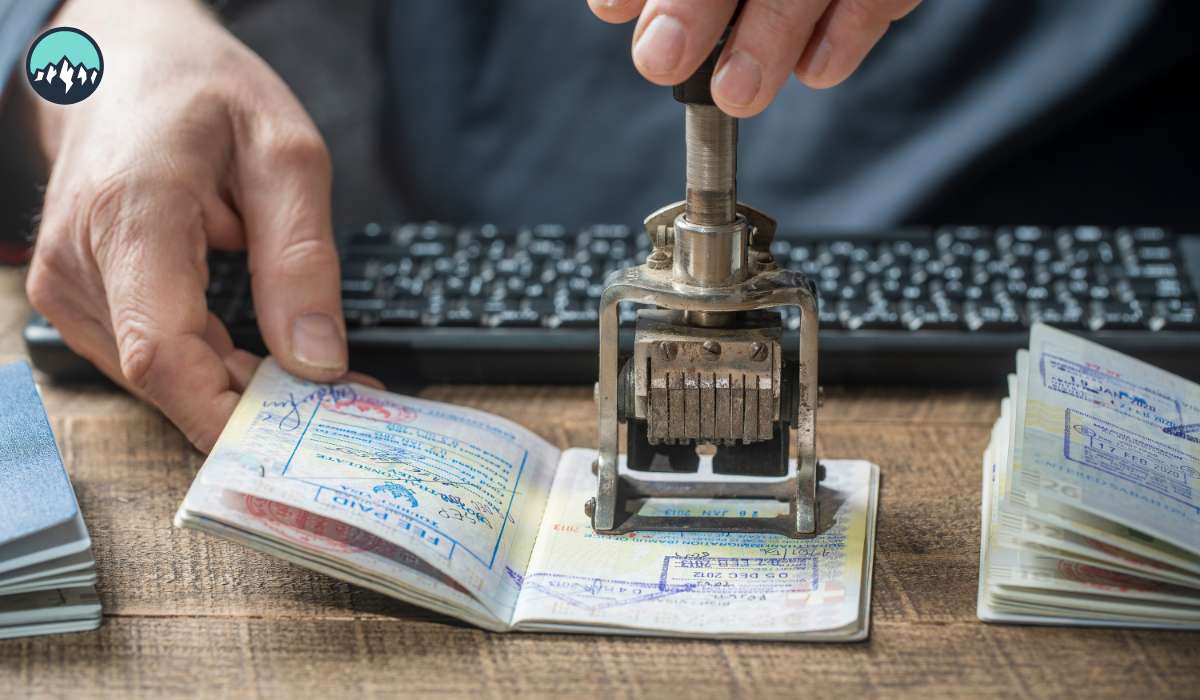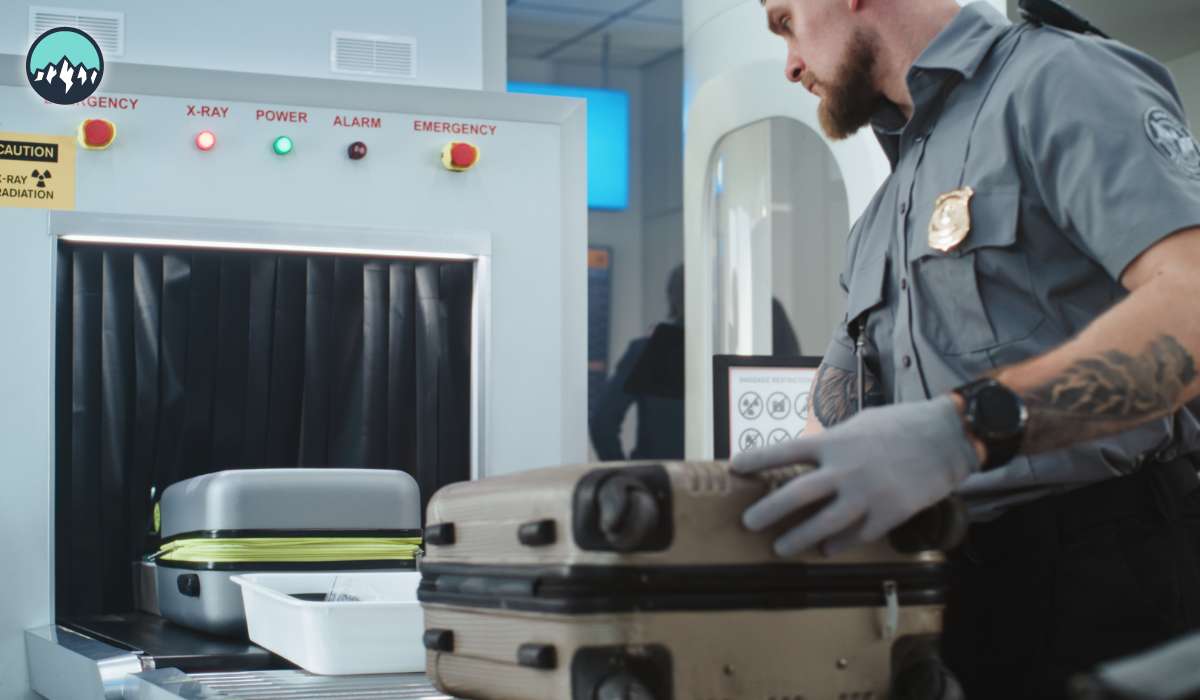Must-Declare Items at Canadian Customs: What You Need to Know
04 Apr 2025

Canada welcomes thousands of people each year via Canadian customs. If you're among those planning to begin a new life in the country, it's essential to understand the customs and border regulations that govern your entry. One of the most necessary steps is declaring the appropriate items when you arrive. Knowing what to declare and how can ensure a smooth transition into your new home, whether you're bringing personal belongings, financial assets, or goods arriving later.
This guide covers everything you should know about must-declare items at Canadian customs.
Arriving in Canada

Once you arrive in Canada, you will be subject to customs and immigration procedures administered by the Canada Border Services Agency (CBSA). These procedures are in place to protect Canada's security, economy, and the health of its population. For newcomers to Canada, the declaration process involves more than just a quick formality; it's an opportunity to accurately account for your belongings and funds, potentially impacting future tax obligations and the importation of goods arriving later.
Essential Documentation for Border Crossing
Before even considering what to declare, newcomers to Canada must ensure they possess all the necessary documentation to enter Canada. The CBSA officers will review these documents during your initial screening interview. The essential documents you must have readily available (not packed in your luggage) include the following.
- Canadian Immigrant Visa (if applicable): Depending on your country of origin and the immigration program through which you were approved, you may have a physical visa affixed to your passport.
- Confirmation of Permanent Residence (COPR) for each family member traveling with you: This official document confirms that you have been approved for permanent residence in Canada. Ensure all details are accurate and match your other identification.
- Valid Passport or other Travel Document for each family member traveling with you: Your passport must be valid and not expired. Other acceptable travel documents may apply in specific circumstances.
In addition to these vital documents, you will also need to prepare two copies of each of the following lists:
A Detailed List of All the Personal or Household Items You Bring
This list should be comprehensive, including everything from clothing and furniture to electronics and jewelry. For each item, make sure to note its approximate value, make, model, and serial number (if applicable).
A List of Items That Are Arriving Later and Their Monetary Value
Many newcomers to Canada ship some of their belongings to Canada after their initial arrival. This separate list should detail these items and their estimated value. Declaring these "goods to follow" upon your first entry can exempt them from duty and taxes later, provided they are imported within a specified timeframe.
Common Items That Must Be Declared
Canada has strict regulations on certain categories of goods. If you bring these items, you must declare them:
Alcohol and Tobacco
You may be allowed a limited quantity duty-free (e.g., 1.5 liters of wine or 200 cigarettes). Anything beyond the allowance must be declared and is subject to duties and taxes.
Food, Plants, and Animals
Most packaged goods must be inspected. Fresh fruits and vegetables are often restricted or prohibited. Bringing pets requires proper vaccinations and documentation. You must check the Canadian Food Inspection Agency website for up-to-date information.
Firearms and Weapons
Must be declared upon entry. Canada has strict gun control laws—do not attempt to bring firearms without proper authorization. Pepper spray and specific knives are considered prohibited weapons.
Items from Endangered Species
Items made from ivory, coral, or certain exotic woods must be declared. You may need special permits under the Convention on International Trade in Endangered Species (CITES).
To streamline the declaration process for your personal and household goods, you can proactively complete the BSF186 Personal Effects Accounting Documents form before your travel. Presenting this completed form to the border services officer once you arrive in Canada can streamline the clearance of your belongings.
It is highly recommended that a certified translator translate important documents into English or French before you arrive in Canada. This includes:
- Marriage certificates,
- Birth certificates,
- Diplomas,
- Professional licenses,and
- Vehicle registration.
This translation will facilitate the understanding of your documents by Canadian border authorities and local institutions.
Preparing for Your Entry Interviews

Upon arrival at a Canadian port of entry (airport, land border crossing, or seaport), you will undergo two screening interviews with CBSA officers. Being well-prepared with your documents and understanding the questions you might be asked will contribute to a smoother and faster process.
First Interview: Official Documents
The first interview focuses on verifying your identity and eligibility to enter Canada as a permanent resident. The CBSA officer will:
- Greet you.
- Ask to see your visa and travel documents (passport, COPR).
- Ensure you and your accompanying family have the correct travel documents.
- Ask about your health.
- Ask questions similar to those on your immigration application form to confirm the information you previously provided.
Second Interview: Personal Goods
The second interview addresses the goods you bring into Canada. The officer will:
- Ask to see your Customs Declaration Card, which requires you to declare various items, including goods subject to duty, the amount of money you carry, and certain restricted items.
- You must inform the officer that you have arrived in Canada to immigrate.
- Present the two copies of your detailed list of personal and household goods you bring and the list of goods to follow.
- The officer will review these lists with you and may ask specific questions about certain items, such as their value or purpose.
- Be prepared for the officer to inspect your luggage.
Common questions during the second interview include:
- What are you bringing to Canada?
- Do you have any live animals or plants with you?
- Do you have any firearms, ammunition, or fireworks with you?
- Do you have any meat or dairy products with you?
- Do you have any fresh fruits or vegetables with you?
- Do you have any items made from endangered species?
Providing truthful and accurate answers to all questions is essential.
What You Need to Declare on Your Customs Declaration Card

The Customs Declaration Card is a vital document that requires you to declare specific categories of items and funds. Understanding what falls under these categories is essential for compliance:
Goods Subject to Duty
This includes items subject to taxes and duties upon entry. Typical examples for newcomers to Canada can include:
- Gifts: While personal and household effects are generally duty-free for settling immigrants, new gifts acquired recently may be subject to duty depending on their value.
- Alcohol: There are limits on the amount of alcoholic beverages you can bring into Canada duty-free, and these limits vary depending on your age and the province of entry. Quantities exceeding these limits will be subject to duty and provincial taxes.
- Tobacco: Similar to alcohol, there are duty-free limits on tobacco products. Exceeding these limits will result in duty and taxes.
- Declare Amount of Money More Than 10,000 CAD: You must declare the exact amount if you carry cash or other monetary instruments totaling 10,000 CAD or more. This includes:
- Cash (Canadian or foreign currency)
- Cheques
- Bank drafts
- Travelers cheques
- Money orders
- Securities (stocks, bonds, etc.)
Business Goods
These must be declared if you bring any goods intended for commercial use, resale, or business purposes (even if you are not immediately starting a business). The rules for importing business goods can be different from personal effects.
Plants, Food, and Animals
Canada has strict regulations regarding importing plants, food products, and animals to protect its agriculture and environment. You must declare all such items, even seemingly harmless ones like fruits, vegetables, seeds, meat, dairy, and pet food. Be prepared to provide documentation for pets, such as vaccination records.
Firearms or Other Weapons
The importation of firearms and other weapons into Canada is strictly controlled. You must declare all firearms and other weapons, and you must comply with specific regulations, which may include permits and registration. Certain weapons are prohibited in Canada.
Items From Endangered Species
Importing or exporting products derived from endangered or threatened species is illegal without the necessary permits. Make sure to declare any such items you may possess.
The Importance of Declaring All Items
The cornerstone of a smooth customs clearance is a complete and honest declaration. Attempting to conceal items or providing false information can lead to severe penalties, including:
- Fines: You may be required to pay significant fines depending on the nature and value of the undeclared items.
- Seizure of Goods: Undeclared goods may be confiscated by the CBSA.
- Delays: Undeclared items can lead to lengthy delays in your clearance process as officers investigate.
- Inadmissibility to Canada: In severe cases of misrepresentation, you could be deemed inadmissible to Canada and face removal proceedings.
Remember that the CBSA officers are experienced in identifying undeclared items. It is always better to declare an item and inquire about its admissibility or any applicable duties than to risk the serious consequences of non-declaration.
Settler's Effects List
The Settler’s Effects List is one of new immigrants' most important customs documents. It helps customs officials determine which of your personal belongings are entering the country duty-free. You must prepare two copies of a detailed list of goods divided into two sections: Goods you are bringing now and Goods that will arrive later (with their value). Each item on the list should include a:
- Description,
- Value,
- Make and model, and
- Serial number (if available).
Although this can be done manually, it’s strongly recommended that you fill out Form BSF186 – Personal Effects Accounting Document before travel. This will help streamline the customs process. Upon arrival, you must submit this form to the CBSA officer, even if you don't immediately bring in your goods.
Health Documentation
Vaccination records are vital, especially if you have children. In Canada, children are required to present immunization records to enroll in school. Ensure that you bring official documents listing vaccinations for each family member and translations in English or French if the original documents are in another language.
Without proper documentation, children may face delays in attending school or accessing public health services. If your child has not yet been vaccinated, you should contact a local public health clinic immediately after arrival to begin the necessary immunization schedule. These clinics guide Canada's vaccine requirements and help you catch up on missing doses.
FAQs
Which Items Are Prohibited or Restricted?
Prohibited items, including certain firearms, hate propaganda, and some hazardous materials, are not allowed into the country. On the other hand, restricted items may be allowed entry but require special permits or meet specific conditions, such as certain medications, firearms for specific purposes, and some agricultural products.
What Happens If You Fail to Declare Items at the Canadian Border?
Failure to declare items or funds at the Canadian border can lead to serious consequences. Border services officers can issue warnings, levy significant fines, and even seize undeclared goods or funds. In more severe cases involving intentional concealment or misrepresentation, you could face criminal charges and potential inadmissibility to Canada.
What Happens After I Successfully Pass Through Canadian Customs?
Once you pass through Canadian customs, the border services officer will typically stamp your COPR document, officially marking your entry as a permanent resident. You will then be free to enter Canada and begin settling into your new life. Depending on the port of entry, you may receive further information or directions regarding the next steps, such as applying for your Permanent Resident card or accessing settlement services.




